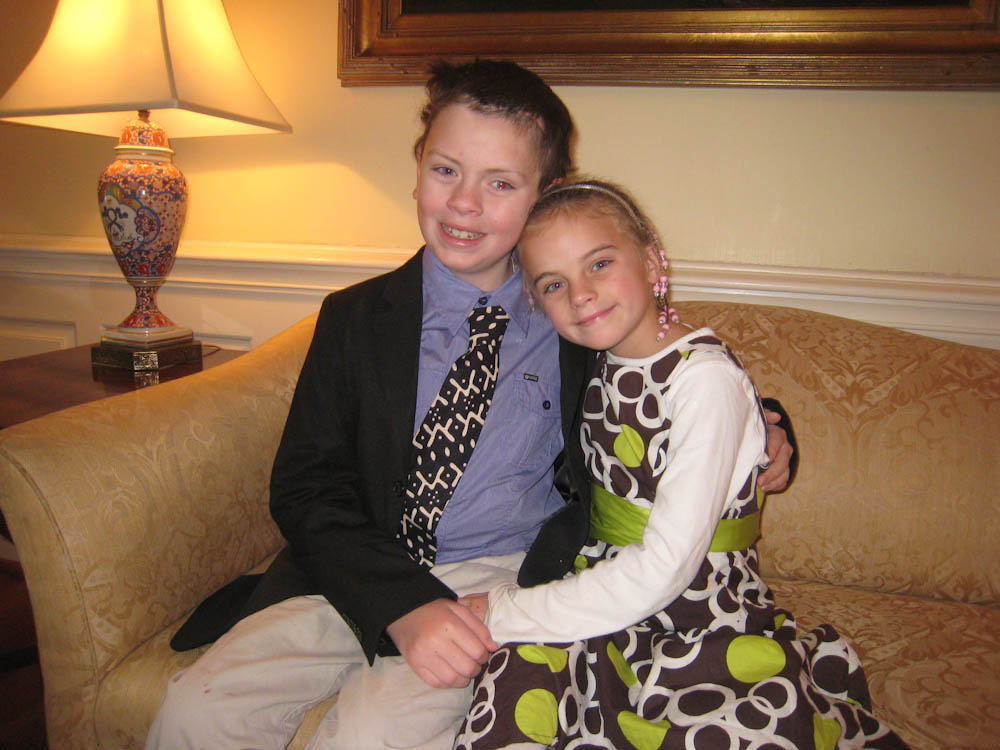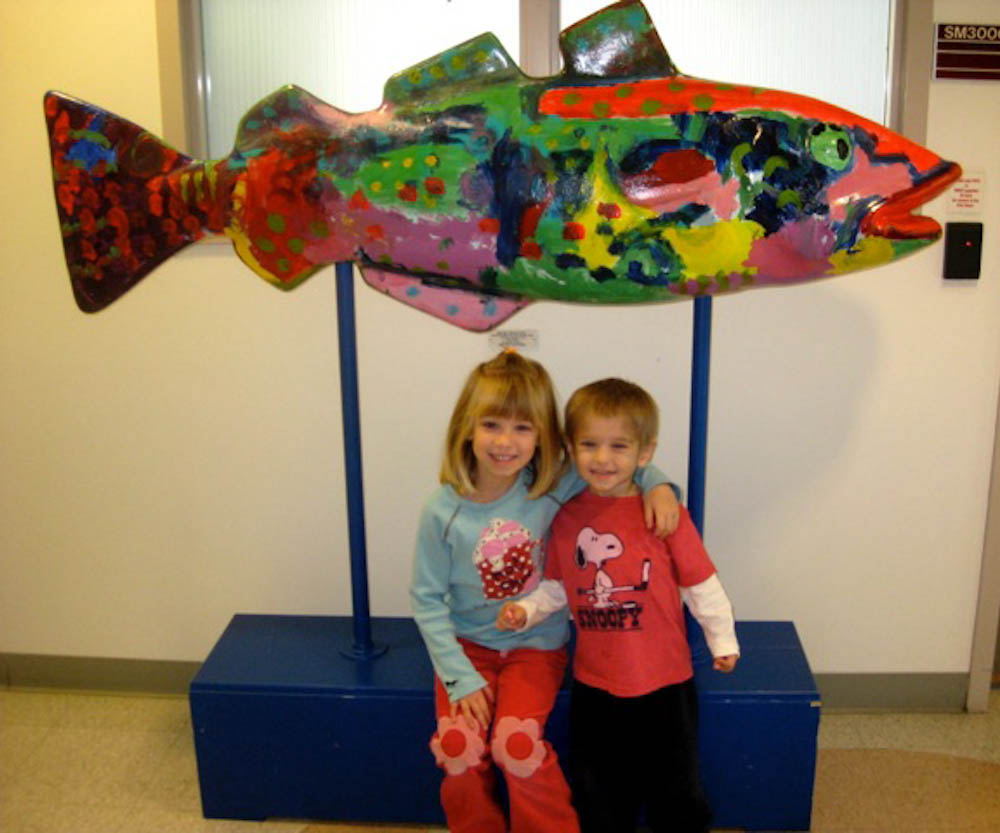When Phoebe Clark was 14-months old, she had little knowledge of what was happening to her brother, Harry. The 5-year-old had been diagnosed with a brain tumor and was undergoing multiple surgeries and radiation therapy at Dana-Farber/Boston Children’s Cancer and Blood Disorders Center.
But a few years later, when Phoebe was 5-years old, her brother suffered a brain bleed and was back in the hospital. Suddenly, the hospital and the Jimmy Fund Clinic were not only at the center of Harry’s world, they were a major part of Phoebe’s life, too.

“You really started to see the impact of what was happening to Harry was also happening to Phoebe,” says Phoebe’s mother, Eunice Groark. “The Sibling Program helped her understand she wasn’t the only one struggling with her feelings. It helped her get through such a tough time.”
The Sibling Program offered through Dana-Farber/Boston Children’s Psychosocial Services provides support for school-aged and teenage siblings of young patients. Through individual and group activities, the program aims to create a better experience for everyone involved in the cancer journey.
“When a brother or sister is diagnosed with cancer, the very fabric of their lives shifts,” says Deborah Bond Berk, LICSW, clinical social worker and director of the Sibling Program. “Research has demonstrated that when siblings receive the support they need, they are better able to cope at home and in school, helping ease the process for the entire family.”
In addition to art projects and one-on-one sessions with child life specialists, there are special programs like the “Just for Sibs” group, which meets weekly and allows kids age 5-12 to connect with other siblings who have brothers or sisters in treatment or who have recently completed treatment. Group activities are also offered for teenage siblings.
“Sibling Bags” are also given to all brothers and sisters age 5 and up, and include therapeutic activities as well as age-appropriate books to provide understanding and support.
For Phoebe, time spent with her social worker made a world of difference. Through art projects and conversations, Phoebe was able to open up and express her thoughts about her brother’s illness.
Read more:
“As a parent, you’re torn between wanting to take care of your child who is sick and at the same time, wanting to love and nurture your other child, but you can’t do it all,” Groark says. “The Sibling Program gave Phoebe something I couldn’t.”
Seeing his sister having her own experiences in the hospital also helped bring some comfort to Harry, who is now 15 and still undergoing regular treatment. “It almost helped normalize the situation,” Groark says.
The fun activities provided through the Sibling Program made Stella Mullen look forward to hospital visits while her younger brother, Christopher, was in treatment. The big sister was 4-years old when her 18-month-old brother was diagnosed with cancer, and she spent two years taking part in craft projects, pizza parties and making a video called, “Sibling Voices.”
The “Bring Your Sibling to Clinic” Week, which takes place during the Massachusetts Public School vacation week in April, was also a big part of Stella’s experience. The week includes crafts, guest artists, psychosocial group activities, and lunch for the entire family and staff. Siblings are also invited to have their vitals and weight taken with their brother or sister.

“Stella didn’t mind coming to the clinic, even though the stays could be as long as 4-5 hours, due in large part to the social workers and activities they had planned for her and her brother,” says Stella’s mom, Lisa. “She felt important and special.”
In fact, because of Stella’s positive experiences with the Sibling Program, Stella, now 11, was not afraid when she was admitted to Boston Children’s for a recent health issue.
Now, five years after Christopher’s death, Stella is finding similar comfort through family bereavement support groups through Camp Sunshine. Like the Sibling Program activities that supported her during her brother’s illness, the bereavement group helps Stella realize she is not alone.
Learn more about Dana-Farber/Boston Children’s Sibling Program. If you’re a parent living with cancer, learn strategies for communicating to your children about your diagnosis through Dana-Farber’s Family Connections Program.

You go strong! Don’t ever feel alone. People will lift you up. My brother has me he doesn’t just have cancer. He has me.